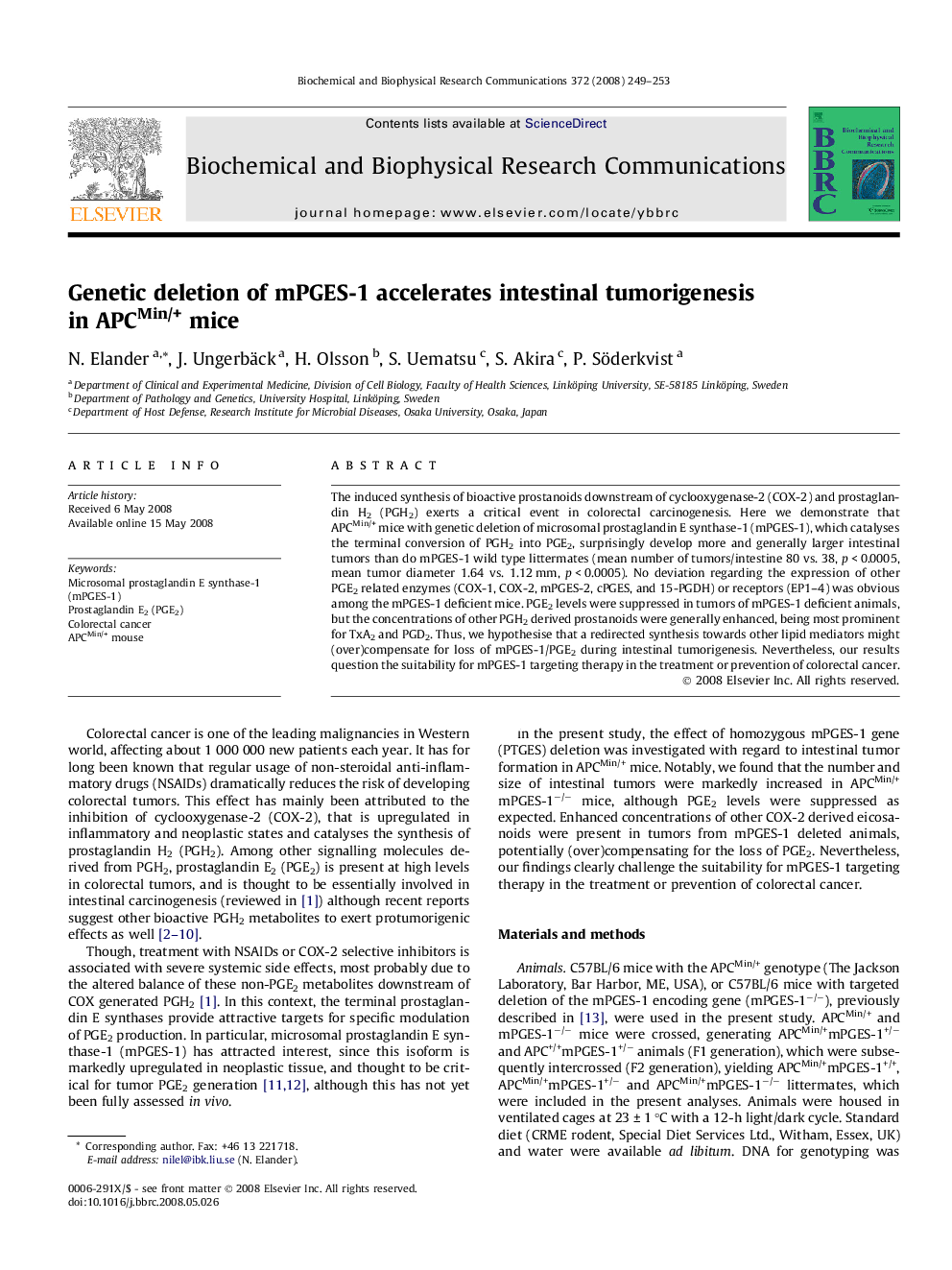| Article ID | Journal | Published Year | Pages | File Type |
|---|---|---|---|---|
| 1935539 | Biochemical and Biophysical Research Communications | 2008 | 5 Pages |
The induced synthesis of bioactive prostanoids downstream of cyclooxygenase-2 (COX-2) and prostaglandin H2 (PGH2) exerts a critical event in colorectal carcinogenesis. Here we demonstrate that APCMin/+ mice with genetic deletion of microsomal prostaglandin E synthase-1 (mPGES-1), which catalyses the terminal conversion of PGH2 into PGE2, surprisingly develop more and generally larger intestinal tumors than do mPGES-1 wild type littermates (mean number of tumors/intestine 80 vs. 38, p < 0.0005, mean tumor diameter 1.64 vs. 1.12 mm, p < 0.0005). No deviation regarding the expression of other PGE2 related enzymes (COX-1, COX-2, mPGES-2, cPGES, and 15-PGDH) or receptors (EP1–4) was obvious among the mPGES-1 deficient mice. PGE2 levels were suppressed in tumors of mPGES-1 deficient animals, but the concentrations of other PGH2 derived prostanoids were generally enhanced, being most prominent for TxA2 and PGD2. Thus, we hypothesise that a redirected synthesis towards other lipid mediators might (over)compensate for loss of mPGES-1/PGE2 during intestinal tumorigenesis. Nevertheless, our results question the suitability for mPGES-1 targeting therapy in the treatment or prevention of colorectal cancer.
